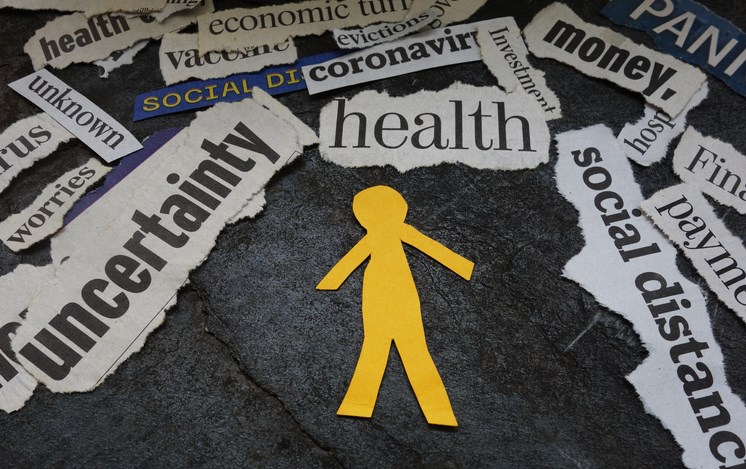How have you been feeling lately?
Chances are, even if you’ve never had a serious struggle with mental health in the past, you might be having a few down days—or even weeks.
Even the most resilient people I know lately have been suffering from some “blah” moments where it feels hard to even get out and do the things that make you happy (that you’re still allowed to do under current COVID-19 restrictions).
While I struggle with the Pacific Northwest winter gloom in the cheeriest of years, the dark, wet days have felt particularly hard for me working from home in my small apartment. I’ve struggled to find motivation to go for a weekend hike or a daily run—things I usually love.
I’ve been an anti-homebody my entire life, but now I find myself revelling in the safety and ease of just not going out to contend with (what feels like) the sickly, COVID-ridden masses.
For the first time I can remember, I feel like I’m living for the future instead of living for the moment, and it’s a tough adjustment.
I suspect that might tap into a lot of people’s mental state right now. We’re all living for sunnier, COVID-free days when we can gather, do whatever activity we want, and leave our hand sanitizer at home again.
Pemberton artist Aurora Moore got me thinking about this strange mental-health-middle-ground this week during an interview.
Her art of Black Tusk was chosen for a pin that Arts Whistler and Whistler Community Services Society are creating for their new ReachOut! Whistler initiative. The project is meant to raise awareness and funds for arts, health and wellness in Whistler.
“One of the things that’s been on my mind is a lot of people don’t feel they deserve help,” Moore says. “People are like, ‘My life isn’t that bad. I shouldn’t complain about it.’ But one of the things I think is everybody deserves the chance to talk to somebody about issues they might have.”
We talk often in this paper and in this community about seeking help when you’ve realized that you’re struggling with mental health. (In fact, Bell Let’s Talk day is set for Thursday, Jan. 28, dedicated entirely to breaking down stigma around mental health.) But, like Moore pointed out, what if you’re in a more muddled in-between place where you’re feeling a little off, but you can’t articulate it without also rattling off all the ways you’re still so lucky?
I know I’ve done that multiple times throughout the last 10 months. In fact, I can’t even count how many casual conversations have concluded in “but we’re so lucky to live here right now where we can still enjoy the outdoors, aren’t we?”
It just feels ironic that even with a vaccine rollout underway and some kind of end to this pandemic in sight, things still feel so heavy and relentless.
So what if we took a cue from this campaign and actually spoke a little more honestly about struggles that might feel low-level compared to more serious mental-illness battles, but still are battles nonetheless?
I suspect if we dedicated the next few months to answering the rhetorical question, “how are you?” with an honest answer, we might find the person politely asking it could actually relate.
“Actually, I’m pretty sick of being at home so much.”
“I’m tired of heading into public places on edge and armed with masks and sanitizer.”
“I’m so over not being able to make future plans.”
“If I have to hear one more well-intentioned politician tell me I must remain vigilant, I’m going to lose it.”
Full stop. No “but I’m so lucky to have a job,” or “my family is healthy, so I can’t complain” as an addendum.
It’s OK to not be OK sometimes. It might not require a counselling session or medication, but who knows, it just might help to talk to someone about it.
